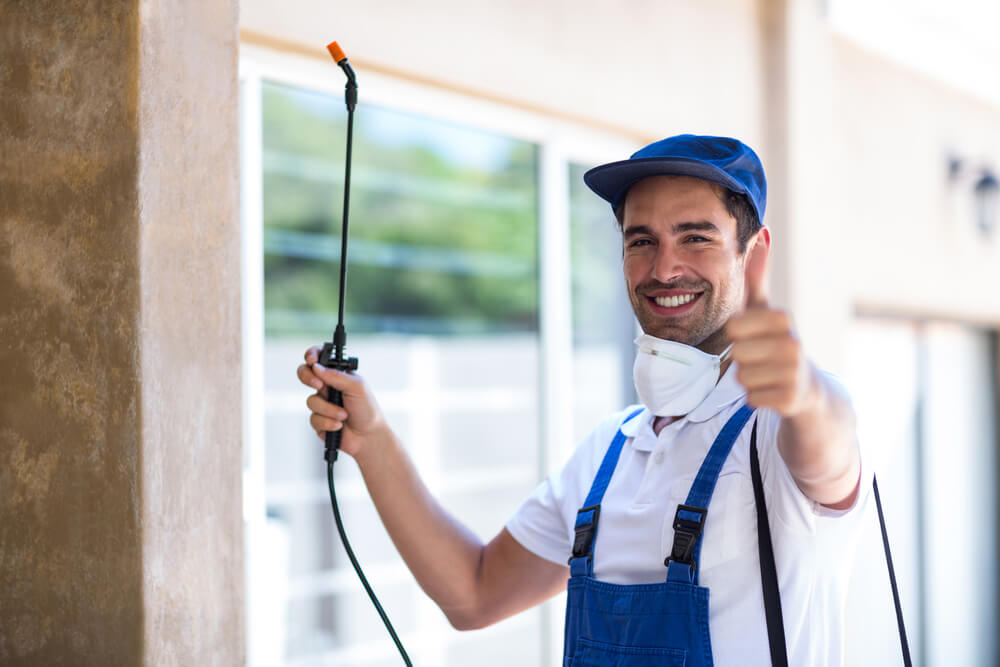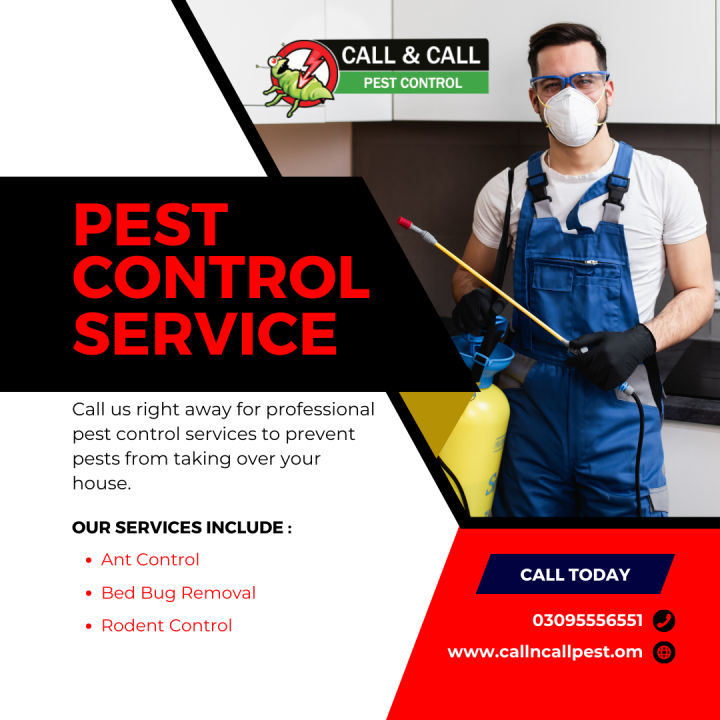Pest Control Clovis: Get Rid of Vermin Finally
Wiki Article
Comprehending the Numerous Methods to Pest Control: A Comprehensive Guide

All-natural Pest Control Approaches
Utilizing environmentally friendly techniques such as friend growing and biological bug control is necessary for efficiently managing pests in farming settings. Friend growing entails growing different plants in distance to deter parasites, improve nutrient uptake, and improve total plant health and wellness.Biological parasite control includes introducing all-natural predators or virus to manage pest populaces. Ladybugs, for example, eat aphids, regulating their numbers without the requirement for chemical pesticides. Another instance is the use of Bacillus thuringiensis (Bt), a microorganism that targets particular insect parasites while being harmless to human beings, animals, and beneficial pests.
These environment-friendly methods not just reduce the reliance on synthetic chemicals but likewise help protect biodiversity and dirt health and wellness. By including natural parasite control methods into farming techniques, farmers can accomplish lasting pest administration while decreasing negative influences on the environment.

Chemical Pest Control Solutions
In addition to all-natural parasite control methods, the use of chemical pest control options plays a significant role in successfully taking care of pest populaces in agricultural environments. Chemical insect control options are created to target certain bugs that may cause considerable damages to crops. These services usually include synthetic pesticides that are created to get rid of parasites quickly and efficiently.One of the essential advantages of chemical bug control remedies is their performance in regulating parasite problems widespread. Farmers can use these options making use of numerous approaches such as splashing, airing out, or seed treatment to safeguard their crops from damaging insects, weeds, and diseases. Additionally, chemical pest control solutions are relatively very easy to use and can supply fast results, helping farmers guard their returns and lessen economic losses.
Nevertheless, it is vital to use chemical parasite control options sensibly to decrease prospective negative influence on the atmosphere, non-target organisms, and human wellness. Appropriate application strategies, adherence to security standards, and routine monitoring are critical to guarantee the liable use chemical parasite control services in agricultural techniques.
Biological Parasite Control Approaches
Biological bug control approaches utilize natural predators or virus to handle parasite populations in farming setups efficiently. This approach offers a environmentally friendly and lasting solution to pest administration, reducing the reliance on synthetic chemicals and decreasing harm to the atmosphere. One usual biological control technique is the intro of natural enemies, such as ladybugs Full Report or parasitic wasps, navigate to this site to target certain pests. These predators feed upon the bugs, helping to control their populaces normally - pest control clovis.An additional biological control method includes using virus like germs, fungis, or infections to contaminate and kill parasites. Overall, organic insect control approaches use a sustainable and targeted option to pest management in farming.
Integrated Pest Monitoring (IPM)
Integrated Pest Administration (IPM) is a thorough method that incorporates various parasite control strategies to properly manage and lessen pest populations in agricultural systems. IPM concentrates on long-lasting prevention of insects via a combination of biological, social, physical, and chemical control approaches. By integrating these various strategies, IPM aims to minimize reliance on chemical pesticides, lessen ecological effect, and advertise sustainable bug management methods.
One secret facet of IPM is the use of biological controls such as all-natural killers, bloodsuckers, and pathogens to control bug populaces. This approach utilizes the power of nature to keep a balance between bugs and their all-natural adversaries without creating harm to the environment.
Furthermore, IPM includes cultural methods like crop cleanliness, habitat, and rotation manipulation to produce undesirable problems for bugs and interrupt their life process. Physical controls such as composts, catches, and barriers are additionally made use of to avoid parasite problems.
Mechanical and Physical Insect Control Methods
look at this website Utilizing non-chemical methods, such as physical and mechanical parasite control methods, is an essential aspect of comprehensive parasite monitoring techniques, building upon the foundation of Integrated Parasite Administration's alternative approach. Mechanical parasite control entails making use of physical barriers or catches to stop insects from accessing and damaging crops or frameworks. This approach can include strategies like setting up screens on home windows, utilizing row covers in agriculture, or using sticky catches to capture insects.Physical parasite control techniques, on the other hand, emphasis on directly removing insects via physical ways. Utilizing warmth therapies to eliminate bed insects or vacuuming up parasites like spiders or ants can be effective methods to manage invasions without the use of chemicals. By including these physical and mechanical insect control methods into an Integrated Insect Monitoring plan, professionals and people can lower dependence on pesticides while still properly managing pest populaces and decreasing damage.
Final Thought

In enhancement to all-natural insect control methods, the application of chemical bug control services plays a significant duty in successfully handling pest populaces in farming environments.One of the vital advantages of chemical parasite control remedies is their effectiveness in regulating insect infestations on a huge scale.Integrated Insect Monitoring (IPM) is a comprehensive technique that incorporates numerous insect control approaches to effectively handle and lessen pest populaces in agricultural systems.Utilizing non-chemical techniques, such as physical and mechanical parasite control techniques, is a critical element of comprehensive bug management methods, constructing upon the foundation of Integrated Parasite Management's alternative strategy. By integrating these physical and mechanical insect control methods right into an Integrated Parasite Monitoring plan, people and specialists can lower reliance on pesticides while still successfully decreasing and managing pest populaces damages.
Report this wiki page